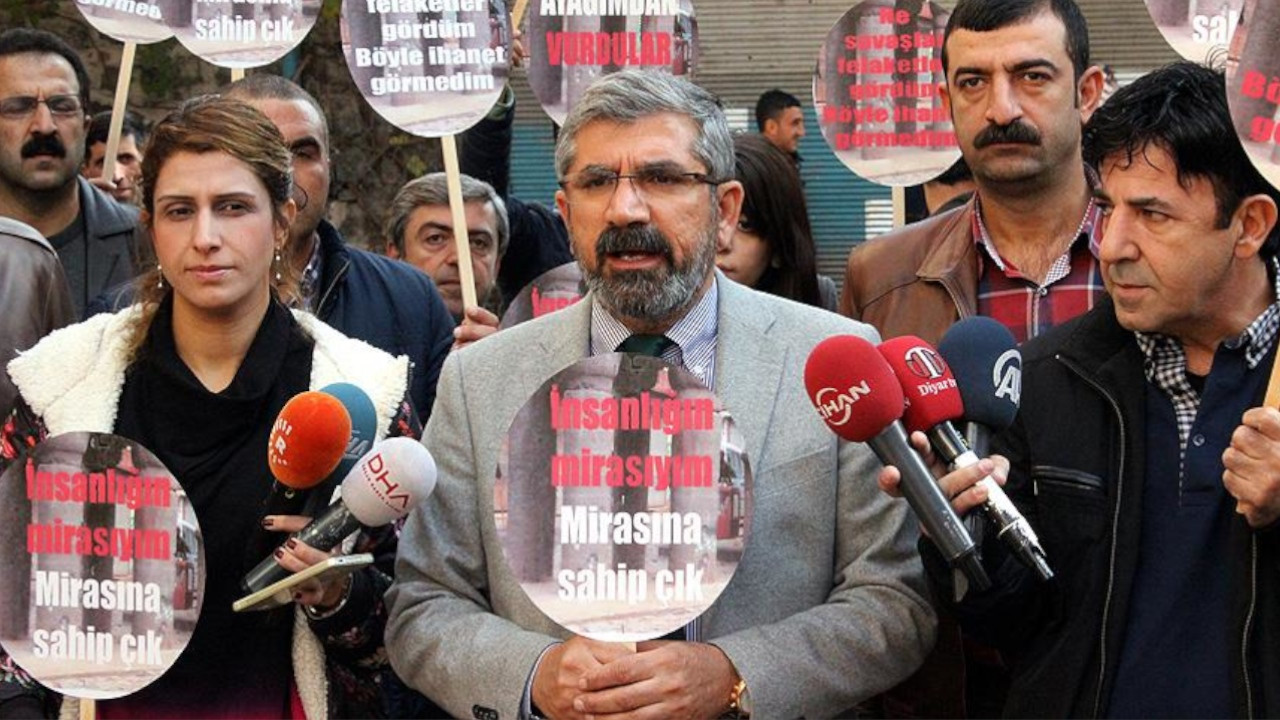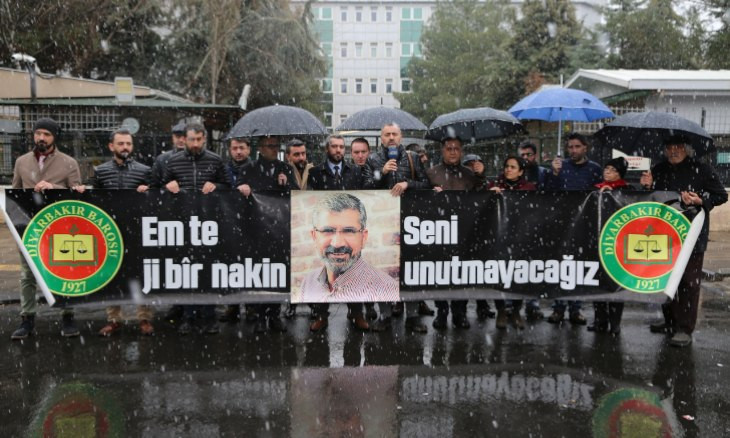Turkish court refuses to arrest police officers suspected of killing Tahir Elçi
A Turkish court on March 3 refused to arrest police officers suspected of killing Tahir Elçi despite an extensive report that shows PKK militants didn't fire at Elçi, but only bullets from three officers could have killed him.
Duvar English
A court in Turkey's mainly Kurdish southeastern province of Diyarbakır has refused to arrest three police officers who are suspected of killing Tahir Elçi, a Kurdish lawyer and human rights activist.
The Diyarbakır 10th Heavy Penal Court denied the request to arrest three officers, Sinan Tabur, Mesut Sevgi and Fuat Tan despite Forensic Architecture's extensive report proving that only bullets from them could have killed Elçi.
Elçi, who was head of the Diyarbakır Bar Association, was killed in broad daylight on Nov. 28, 2015, while speaking to the media to call for an end to the ongoing conflict between Turkish security forces and the Kurdistan Workers' Party (PKK).
Elçi’s press conference was interrupted when two alleged members of the PKK ran through the scene, moments after they had shot and killed two police officers nearby.
Police who had been at the press conference opened fire as the pair ran past, and several shots were fired. Elçi received a bullet to the back of his head and lost his life at the scene of the incident.
Three police officers and a man claimed to be a PKK member, Uğur Yakışır, stand as suspects in the murder case.
Diyarbakır Bar Association and Tahir Elçi Human Rights Foundation have been criticizing the indictment, saying that the inclusion of Yakışır as a suspect in the case is inconsistent and is an attempt to divert the attention from the real perpetrators.
Diyarbakır Bar Association had previously asked Forensic Architecture, a research agency based in the University of London, to investigate Elçi's death by analyzing the camera footage. The Forensic Architecture had said in their report in 2019 that three police officers on the scene were the most likely suspects, ruling out the possibility of PKK killing Elçi.
On 3 March, the trial of #TahirElçi’s killing reopens. But there is a problem with the indictment. It charges the officers we identified, but also charges a PKK militant, despite our findings showing clearly that he could not be responsible for Elçi’s death. #TahirElçiİçinAdalet pic.twitter.com/nDVoCtmADr
— Forensic Architecture (@ForensicArchi) February 25, 2021
It was only after this report that the three police officers who had fired shots on the day were interviewed as suspects rather than merely as eyewitnesses. They are now indicted in the prosecution.
There have been other obstacles to securing an effective investigation into Elçi’s killing. Authorities failed to examine the firearms that the police carried at the scene of the killing and failed to locate the bullet that shot Elçi. There have been also extreme delays in the prosecution process, with prosecutors having been replaced several times.
During the second hearing of the case held on March 3, which was held 132 days after the first one, police officers appeared in court via the Audio and Visual Information System (SEGBİS).
Prosecutors are seeking minor sentences for police officers, whereas Yakışır, who is tried in absentia, faces multiple aggravated life sentences and an additional 45 years in prison. Yakışır is also accused of murdering two police officers that were killed on the same day with Elçi.
Elçi's wife Türkan Elçi, his brothers and the Diyarbakır Bar Association were allowed to participate in the trial.
The police officers asked the court to ignore Forensic Architecture's report and claimed that they didn't fire at Elçi. They also said that they didn't see the incident.
Diyarbakır Bar Association head Cihan Aydın asked for the arrest of suspects since they continue their duties and can tamper with evidence.
The court, however, rejected the demand and imposed a ban on traveling abroad instead.
The next hearing of the case will be held on July 14.

 Lawyers' bid to recuse judge panel overseeing Tahir Elçi murder case deniedHuman Rights
Lawyers' bid to recuse judge panel overseeing Tahir Elçi murder case deniedHuman Rights Five years later, slain Kurdish lawyer's murder still unresolved as claims of intelligence neglect remainHuman Rights
Five years later, slain Kurdish lawyer's murder still unresolved as claims of intelligence neglect remainHuman Rights Trial in prominent Kurdish lawyer's murder begins five years later amid obstacles to investigationHuman Rights
Trial in prominent Kurdish lawyer's murder begins five years later amid obstacles to investigationHuman Rights